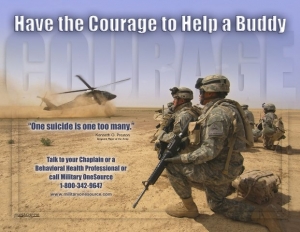Administrator
AFOM WELCOMES NEW AMBASSADOR - WARRANT OFFICER CLASS ONE DARREN MURCH
WARRANT OFFICER CLASS ONE DARREN MURCH, OAM
REGIMENTAL SERGEANT MAJOR, SCHOOL OF INFANTRY
Warrant Officer Class One Darren Murch enlisted into the Australian Army in September 1986 and was allocated to the Royal Australian Infantry Corps. After completing Initial Employment Training, he was posted to the 1st Battalion, Royal Australian Regiment, where he served as a rifleman, Section 2IC, Section Commander and Reconnaissance Patrol Commander.
Warrant Officer Class One Darren Murch
WARRANT OFFICER CLASS ONE DARREN MURCH, OAM
REGIMENTAL SERGEANT MAJOR, SCHOOL OF INFANTRY
Warrant Officer Class One Darren Murch enlisted into the Australian Army in September 1986 and was allocated to the Royal Australian Infantry Corps. After completing Initial Employment Training, he was posted to the 1st Battalion, Royal Australian Regiment, where he served as a rifleman, Section 2IC, Section Commander and Reconnaissance Patrol Commander.
Want to protect your concentration??? … read this
The children of Veterans are the innocent victims of agent orange
TO READ FULL ARTICLE CLICK ON THE LINK:
http://www.examiner.com/article/the-children-of-veterans-are-the-innocent-victims-of-agent-orange
Insecticide deceit?: the truth about insecticides used at Nui Dat
Over the last two years I have undertaken a study on the use of insecticides at the 1 ATF base at Nui Dat, the home of the Australian and the New Zealand fighting force in Vietnam. The most important finding of this study is that much of the truth about insecticide use by 1 ATF has never been revealed.
Australian Government Repatriation Medical Authority. Notices of Investigation
CLICK ON THE LINK: Notice of Investigation - Diabetes mellitus1
CLICK ON THE LINK: Notice of Investigation - Diabetes mellitus2
CLICK ON THE LINK: Notice of Investigation - Post Traumatic Stress Disorder
CLICK ON THE LINK: Notice of Investigation - Post Traumatic Stress Disorder2
The Greens Military Family Policy
“Although our Organisation is non-political, the Greens approached us for our views on issues regarding families of the Military.
Many of the points AFOM discussed with them are now their policy.
They have been costed by Treasury and hopefully will put pressure on the other political parties to start to really put words into action.
We thank Senator Penny Wright for taking the time to firstly approach us, and then discuss these and many other issues.”
Further Support for the families of Australia's war veterans requires a broad research strategy.
To read full article click on the PDF Link:
Air Force Suicide
Objective
To evaluate the impact of the US Air Force suicide prevention programme on risk of suicide and other outcomes that share underlying risk factors.
Design
Cohort study with quasi-experimental design and analysis of cohorts before (1990-6) and after (1997-2002) the intervention.
Participants5 260 292 US Air Force personnel (around 84% were men).InterventionA multilayered intervention targeted at reducing risk factors and enhancing factors considered protective. The intervention consisted of removing the stigma of seeking help for a mental health or psychosocial problem, enhancing understanding of mental health, and changing policies and social norms.
Main outcome measuresRelative risk reductions (the prevented fraction) for suicide and other outcomes hypothesised to be sensitive to broadly based community prevention efforts, (family violence, accidental death, homicide). Additional outcomes not exclusively associated with suicide were included because of the comprehensiveness of the programme.
Results
Implementation of the programme was associated with a sustained decline in the rate of suicide and other adverse outcomes. A 33% relative risk reduction was observed for suicide after the intervention; reductions for other outcomes ranged from 18-54%.
Conclusion
A systemic intervention aimed at changing social norms about seeking help and incorporating training in suicide prevention has a considerable impact on promotion of mental
health. The impact on adverse outcomes in addition to suicide strengthens the conclusion that the programme was responsible for these reductions in risk.
Mental Health needs of Children
The wars in Afghanistan and Iraq have been challenging for US uni-formed service families and their children. Almost 60% of US service members have family responsibilities. Approximately 2.3 million active duty, National Guard, and Reserve service members have been deployed since the beginning of the wars in Afghanistan and Iraq (2001 and 2003, respectively), and almost half have deployed more than once, some for up to 18 months’ duration. Up to 2 million US children have been exposed to a wartime deployment of a loved one in the past 10 years. Many service members have returned from combat deployments with symptoms of posttraumatic stress disorder, depression, anxiety, substance abuse, and traumatic brain injury.











